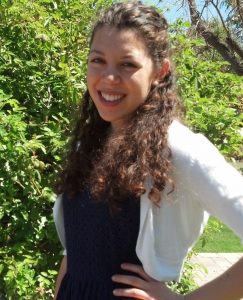
MA in Translation 2017 English/Spanish
Maricopa County Superior Court (U.S.A.)
Bilingual Language Services (Peru)
Q1: What were your top 3 criteria as you selected your internship(s)?
First and foremost, I was looking for one or two internships that would work with my schedule and summer plans. Before I even started searching for an internship, I knew that I had a wedding to attend during the first week of July. As trivial as it might sound, that wedding was really important to me and therefore I didn’t want a 3-month-long internship on a different continent that would force me to travel back and forth twice to the US – just imagine the cost of four flights to Latin America! (One internship I really wanted was located in Argentina and required a 3-month commitment, so I had to turn it down for this reason.) Besides the dates/timing issue, I was concerned about the location of the internship (based on cost and whether the country had my A or B language), and I really wanted to try interpreting in real life, if at all possible.
Q2: What did you learn about your field during your internship?
I had been under the impression that in my B-language country, I would only be interpreting and translating into my A language. However, I would say that 60% of everything I interpreted (and maybe 40% of translations) was into my B language! Moreover, I was expecting all the conference interpreters in Peru to be native English-speakers like me, since in the US most interpreters are native Spanish-speakers (and the needs are opposite); however, I only met one interpreter in Peru who was an English A. This means that interpreters in Peru (and probably other Latin American countries) are expected to interpret simultaneously in both directions, although editing and revision are almost always done exclusively in a person’s native language.
Q3: What did you learn about yourself during your internship?
I really narrowed down my career goals this summer. I tried to envision myself in each of the different roles that I observed (court interpreters, translators, conference interpreters, project managers, etc.), and I just could not see myself as a project manager: personality-wise, I’d rather complete a task someone gives me than assign one to someone else. I also realized that I would feel much more comfortable specializing in one area of expertise in either translation or interpretation rather than interpret at a myriad of different conferences and never quite be an expert on one thing.
Q4: From the employers’ perspective what does a good intern look like?
If you are polite, bring a positive vibe to the workplace, and are receptive to new ideas (and constructive feedback), then you will be a fabulous intern. Employers and fellow employees will respect you if you respect them and show that you are willing to try new things as a part of your learning experience. Ask them questions about their careers, and not only will it give you professional insight, but it will make you memorable!
Q5: Any words of wisdom you would like to share?
Make sure to bring your business cards to your internships, and never underestimate the power of an old-fashioned thank-you note! On the last day at my court interpreting internship, my classmate and I gave everyone in the department a small thank-you note with a piece of chocolate and both of our business cards. Everyone loved the gesture, and it ensured that we were memorable as potential job candidates. I did something similar at my second internship, and both workplaces invited me to come back as an intern (or employee!) in the future. I also handed out my business cards to any new conference interpreter or project manager I met in Peru, thinking that this might help me expand my professional network in a different part of the world. You never know!
–Winnie Heh
Career & Academic Advisor
wheh@miis.edu

